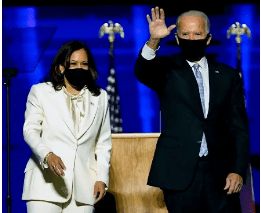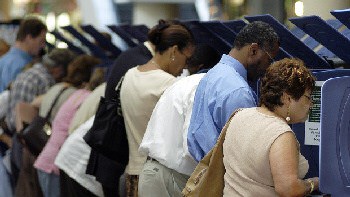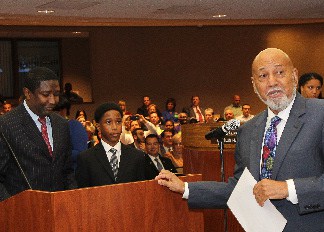US elected to UN Human Rights Council; Antigua’s Prime Minister welcomes latest development of global re-engagement
NEW YORK – Prime Minister of Antigua and Barbuda the Hon. W. Baldwin Spencer has welcomed the United States’ election to the United Nations Human Rights Council, which he noted was yet another sign that Obama Administration is indeed making good on its promise to re-engage at every level.
In yet another sign of deeper engagement on the international stage the US President Barak Obama promised at his inauguration in January of this year, the United States was elected to the United Nations Human Rights Council for a three-year term on Tuesday.
“When one considers that prior to 2009, the US Administration of George W. Bush had shunned the Human Rights Council since its creation three years ago, Tuesday’s election to this same body is another clear demonstration of President Obama delivering on the promise he made to CARICOM heads at last month’s Summit of the Americas in Port-of-Spain, to re-engage the US at the global level,” said the Prime Minister.
The UN Human Rights Council is the successor body to the much-maligned UN Commission on Human Rights, which was widely criticized as a forum for anti-western and anti-Israeli attacks that often came from states whose own human rights records were regarded by some to be questionable.
UN Ambassador Dr. John W. Ashe sent a congratulatory note to his US counterpart Ambassador Dr. Susan Rice, who along with US Secretary of State Hilary Clinton, announced last March that the US would seek its first three-year term on the council, with the aim of making it more effective and protect human rights.
Ambassador Rice, whom President Obama has appointed to his Cabinet, and who is also a longtime friend of Michelle Obama, the first lady, vigorously lobbied the CARICOM Caucus of Ambassadors for support for the US’ candidature.
Many UN member States had long advocated membership for the US since the council was created, which the Bush Administration turned a deaf ear to. That all changed with the election of Barack Obama and the subsequent announcement of the US’ candidature for the council. Once announced the US’s andidature began to assume an ear of inevitability and was all but assured when New Zealand stepped aside to give the US a clear run at one of the three seats on the 47-member council reserved for its geographical group, the Western and Other States Group (WEOG), in today’s vote in the UN General Assembly.
In addition to the United States (which received a total of 167 out of a possible total of 192 votes), the following countries were also elected to the council (with the number of votes received shown in parentheses): Bangladesh (177); Cameroon(142); China(167); Cuba(163); Djibouti(141); Hungary(131); Jordan(178); Kyrgyzstan(174); Mauritius(162); Mexico(175); Nigeria(148); Norway(179); Russian Federation(146); Saudi Arabia(154); Senegal(165); and Uruguay(173).



